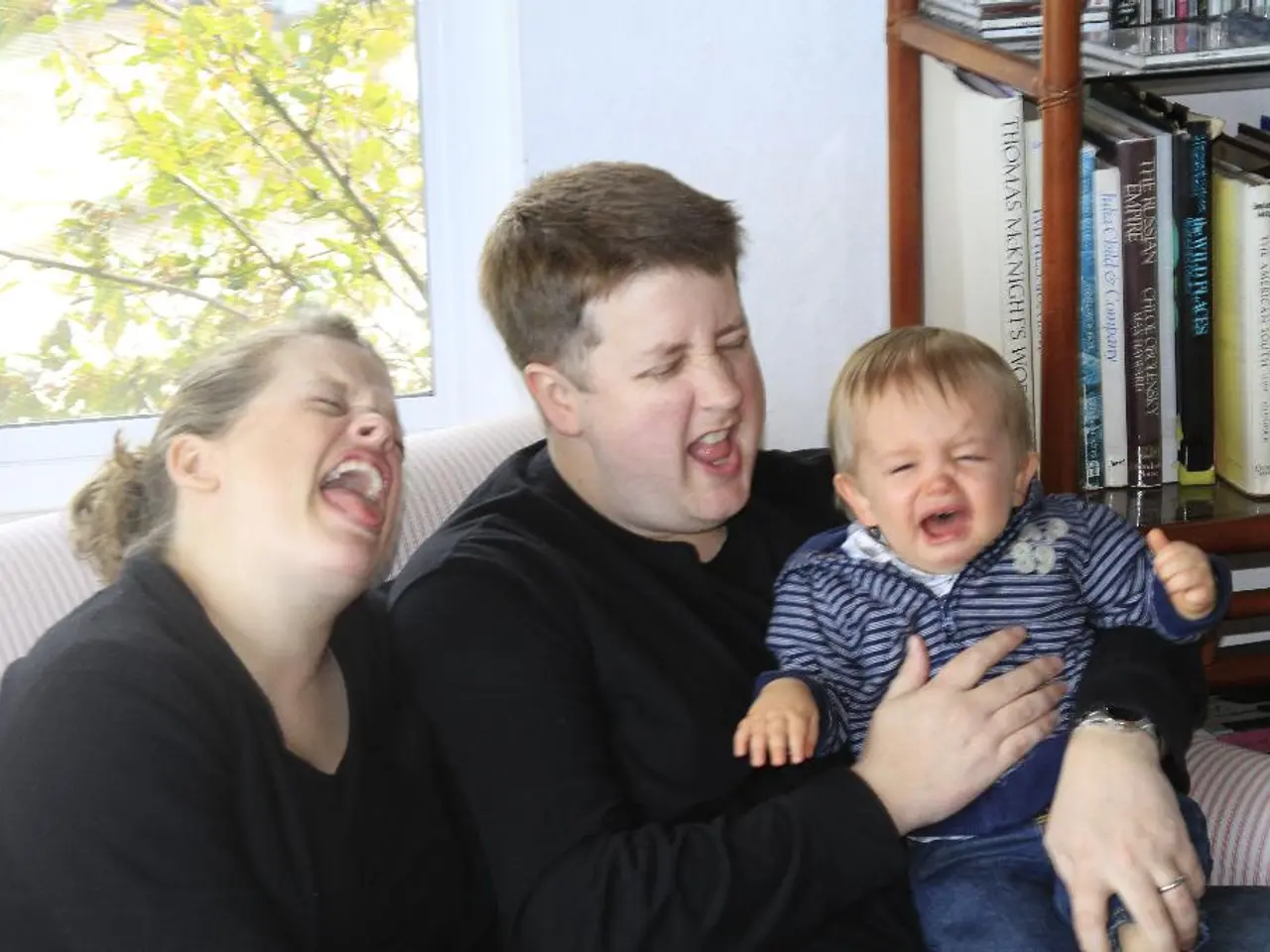Negative father-daughter/son dynamics and their influence on adult relationships and behavior
In the complex world of interpersonal relationships, the term "daddy issues" often arises to describe emotional challenges that stem from a lack of fatherly love, attention, and validation during childhood. These emotional scars can manifest in various ways, affecting self-worth, trust, intimacy, and attachment styles in adult relationships.
Therapy plays a crucial role in addressing these issues, offering a safe space for individuals to explore their subconscious thoughts and emotions. One such therapeutic approach is psychodynamic therapy, which focuses on examining early childhood experiences with the father and how these experiences might influence current relationships and self-perception.
However, therapy is a highly individualized process, and the most effective approach will depend on the specific needs and circumstances of the individual seeking treatment. Other therapeutic approaches for treating "daddy issues" may include cognitive behavioral therapy (CBT), attachment-based therapy, trauma therapy, family therapy, mindfulness-based strategies, and narrative therapy.
Trauma therapy, such as eye movement desensitization and reprocessing (EMDR) or trauma-focused cognitive behavioral therapy (TF-CBT), is particularly beneficial in cases where there has been significant trauma or abuse involving the father. These therapies help individuals process traumatic experiences and develop good coping mechanisms to manage trauma symptoms.
Family therapy, on the other hand, involves working with the individual and their family members, including their father (if safe and appropriate), to address relational dynamics and communication patterns that may be contributing to the issues. This approach provides a safe space for open dialogue, healing past wounds, and rebuilding relationships.
Attachment-based therapy is another valuable tool in understanding and addressing "daddy issues." This approach helps individuals understand their attachment style and how it relates to their relationships with their fathers and others. The ultimate goal is to develop more secure and healthy attachment patterns and relationship dynamics.
CBT, meanwhile, helps identify and challenge thought patterns and behaviors that are negative or unhelpful, and teaches coping skills to manage distressing emotions and improve interpersonal skills.
It's important to remember that therapy often works best alongside other forms of support, such as support groups, self-help resources, and a strong social support network.
In summary, "daddy issues" frequently result in emotional scars that manifest as mistrust, difficulty with emotional intimacy, low self-esteem, and problematic relationship dynamics in adulthood. These issues reflect deeper psychological impacts of inadequate paternal affection and validation in formative years. By seeking therapeutic help and embracing various therapeutic approaches, individuals can work towards healing, self-understanding, and healthier relationships.
References:
[1] Freud, S. (1905). Three Essays on the Theory of Sexuality. Standard Edition, Vol. 7. [2] Johnson, S. M., & Greenberg, L. S. (2015). Emotionally Focused Couple Therapy with Trauma Survivors. Routledge. [3] Linehan, M. M. (1993). Cognitive-behavioral treatment of borderline personality disorder. Guilford Press. [4] van der Kolk, B. A. (2014). The Body Keeps the Score: Brain, Mind, and Body in the Healing of Trauma. Viking. [5] Bowlby, J. (1969). Attachment and Loss: Vol. 1. Attachment. Basic Books.
Science and health-and-wellness intersect in the exploration of "daddy issues," as mental health professionals utilize a variety of therapies and treatments to address emotional scars from inadequate paternal love. Psychodynamic therapy, cognitive behavioral therapy (CBT), attachment-based therapy, trauma therapy, family therapy, mindfulness-based strategies, and narrative therapy are some approaches used to promote self-understanding and healthier relationships (Freud, 1905; Linehan, 1993; van der Kolk, 2014; Bowlby, 1969). A strong support network, including family members (if safe and appropriate) and support groups, can further aid in the healing process (Johnson & Greenberg, 2015). Family health is also an essential factor in addressing and resolving "daddy issues," as family therapy provides a safe space for open dialogue, healing past wounds, and rebuilding relationships.




